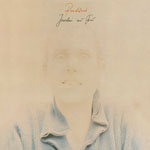|
|
 |
Dusted Reviews
Artist: Roedelius Album: Jardin Au Fou Label: Bureau B Review date: Jun. 2, 2009 |

|
|
|
 |
I’m going to cut to the chase. This album, from 1979 by Brian Eno-collaborator and Cluster member Hans-Joachim Roedelius is boring. Over the course of the 10 short tunes, nothing really happens. In track after track, Roedelius builds from ambient textures and single chord drones, creating glimmering melodies that loop around and around without actually going anywhere. While he spends most of his time on the piano, he does spend a decent amount of time on various kinds of old synthesizers, which is unsurprising given that this was produced by Tangerine Dream organist Peter Baumann. Many of the songs take the form of character vignettes: “Rue Fortune” is a bit of warped merry-go-round music; “Café Central” sounds like music of the future from Epcot Center circa 1965 (and/or a subliminal precursor to Matmos’s Supreme Balloon); “Le Jardin” could be an outtake from Beethoven’s Pastoral Symphony. Given Roedelius’s love of all things ambient, none of this is entirely surprising. But that doesn’t discount the fact that much of this sounds like Muzak you’d hear in a department store.
The larger question is, why should we care? Is there a place in the world for boring music? And, more importantly, can boring music be good? An argument could be made that most of the output of folks like Steve Reich, Terry Riley, Philip Glass, Brian Eno and Michael Nyman could be called boring. Nothing much happens in any of their pieces beyond the gradual unfolding of processes through constant repetition and long-term change. But, as Steve Reich astutely points out, in compelling boring music, “I begin to perceive these minute details when I can sustain close attention and a gradual process invites my sustained attention.” [emphasis mine] Music can be simultaneously boring and interesting only when its boringness demands that you pay attention to it, when it has a kind of compelling, transportative, transformative boredom. Or, a boredom in which you question what boring really means and whether or not you are actually bored. This is the kind of boredom that David Foster Wallace was apparently contemplating while trying to complete The Pale King (his final, incomplete novel); that oppressive, unflinching boredom that somehow ceases to be boredom and becomes something else entirely. This is the kind of boredom that makes Einstein on the Beach or even Tago Mago (because, really, most of those long jams don’t do all that much and yet are nonetheless amazing) so endlessly intriguing.
Sadly, Hans-Joachim doesn’t particularly succeed on Jardin Au Fou of reaching that ne plus alra of boredom. Instead, the tunes here feel uninspired or merely thrown off. Expanding on the bubbling textures of “Toujours,” for instance, could have made this album akin to Terry Riley’s Rainbow in Curved Air. But by insisting on fragments – of bits of Reich’s “gradual process” – Roedelius leaves us with the worst kind of boredom: the kind of utterly mundane, enforced, unquestioned boredom that leaves us looking at our watches, contemplating just how much time has fallen away into the void.
By Dan Ruccia
|







